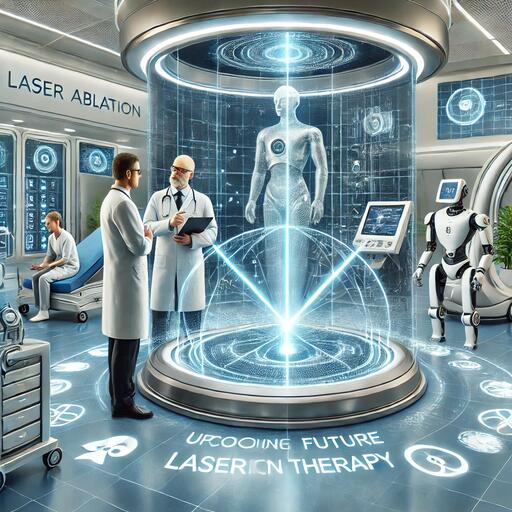Laser ablation therapy in India is a cutting-edge, minimally invasive procedure used to treat various medical conditions, including tumors and varicose veins. With treatment costs starting from ₹1.5 lakh, it is an affordable option compared to global standards. Leading hospitals across India offer this advanced therapy, combining state-of-the-art technology with skilled specialists to ensure high success rates. Recovery time is typically shorter compared to traditional surgical methods, making it a preferred choice for many patients.
Medical disclaimer: This content is for general awareness and does not replace a doctor’s consultation. For diagnosis or treatment decisions, consult a qualified specialist.
At a Glance: Key Takeaways About Laser Ablation Therapy
Laser ablation therapy is a minimally invasive procedure that uses focused laser energy to treat various medical conditions, including varicose veins and tumors. It offers shorter recovery times and fewer complications compared to traditional surgeries.
- Choose laser ablation for minimally invasive treatment with quick recovery.
- Consider traditional surgery for complex or large-scale conditions.
- Ideal for patients seeking outpatient or same-day procedures.
- Not suitable for individuals with certain medical contraindications.
- Discuss candidacy with a specialist for personalized advice.
Costs & Factors: Typical Ranges in India
What Influences the Cost of Laser Ablation Therapy?
The cost of laser ablation therapy in India depends on factors such as the type of condition being treated, the hospital's location, and the expertise of the medical team. Advanced equipment and additional diagnostic tests may also increase the overall expense.
Average Treatment Costs Across Top Hospitals
The average cost of laser ablation therapy in India ranges from ₹1,80,000–₹3,60,000 (≈ $2,150–$4,350 USD). Prices may vary based on the hospital's reputation and whether the procedure is performed in a metropolitan city or a smaller town.
Hidden Costs and Additional Expenses
Patients should account for hidden costs such as pre-procedure tests, follow-up consultations, and medications. Some hospitals may also charge extra for post-treatment care or extended hospital stays, depending on the patient's recovery needs.
- Pre-procedure tests: ₹10,000–₹20,000
- Follow-up consultations: ₹5,000–₹10,000
- Medications: ₹2,000–₹5,000
How It Works: Steps & Workflow
Pre-Treatment Preparation and Consultation
Before the procedure, patients undergo a detailed consultation to assess their medical history and suitability for laser ablation. Diagnostic tests such as ultrasounds or MRIs may be performed to pinpoint the treatment area and plan the procedure effectively.
The Laser Ablation Procedure: Step-by-Step
The procedure typically involves local anesthesia, followed by the insertion of a thin laser fiber into the targeted area. The laser energy is then applied to destroy or shrink the affected tissue. The entire process usually takes 1–2 hours and is performed on an outpatient basis.
Post-Treatment Care and Follow-Up
After the procedure, patients are advised to rest and avoid strenuous activities for a few days. Follow-up visits are essential to monitor healing and ensure the treatment's success. Compression garments or medications may be prescribed to aid recovery.
- Consultation and imaging tests
- Outpatient procedure with local anesthesia
- Follow-up care for optimal recovery
Benefits & Risks: What to Expect
Laser ablation therapy offers several benefits, including minimal scarring, reduced pain, and faster recovery times. However, like any medical procedure, it carries potential risks such as minor burns, temporary swelling, or rare complications like infection.

- Benefits: Minimally invasive, quick recovery, outpatient procedure
- Risks: Minor burns, swelling, rare infections
- Discuss risks and benefits with your doctor before proceeding.
Who It’s For: Eligibility & When to Choose It
Who Are the Ideal Candidates for Laser Ablation?
Laser ablation therapy is typically recommended for individuals with conditions such as varicose veins, benign tumors, or certain types of chronic pain. It is ideal for patients seeking a minimally invasive option with faster recovery times. Candidates should generally be in good overall health and have localized issues that can be effectively targeted by laser technology.
When Should You Avoid Laser Ablation Therapy?
Patients with severe systemic illnesses, uncontrolled diabetes, or bleeding disorders may need to avoid laser ablation therapy. Additionally, it may not be suitable for individuals with extensive or diffuse conditions that require broader surgical intervention. Always consult a specialist to evaluate your specific risks and benefits.
Timeline & Aftercare: First 4–12 Weeks
The recovery period after laser ablation therapy is generally smooth, with most patients resuming daily activities within a few days. During the first 4 weeks, mild swelling or bruising may occur, which can be managed with compression garments and prescribed medications. By 12 weeks, most patients experience significant improvement in symptoms and minimal scarring.

Aftercare involves regular follow-ups to monitor healing and ensure the treated area is responding well. Patients should avoid strenuous activities for at least 2 weeks and follow their doctor’s advice regarding physical activity and wound care.
- Wear compression garments as advised.
- Avoid heavy lifting for 2 weeks.
- Attend follow-up appointments for progress checks.
Alternatives & When They Fit Better
Other Minimally Invasive Treatment Options
Alternatives to laser ablation include radiofrequency ablation, sclerotherapy, and cryotherapy. These methods are also minimally invasive and may be better suited for specific conditions. For example, sclerotherapy is often preferred for smaller varicose veins, while radiofrequency ablation can be an effective option for patients with larger veins.
When to Consider Traditional Surgical Methods
Traditional surgical methods, such as vein stripping or open tumor removal, may be necessary for patients with extensive or complex conditions that cannot be addressed by minimally invasive techniques. These methods are typically chosen when precision targeting is insufficient or when the condition involves larger areas.
Key Differences: Side-by-Side Comparison
Who Is a Good Fit for Each Option?
Laser ablation is ideal for patients seeking a minimally invasive solution with quicker recovery, while traditional surgery may suit those with more severe or widespread conditions. The choice depends on the condition’s complexity and the patient’s overall health.
Cost & Ongoing Needs: A Comparison
Laser ablation therapy in India typically costs ₹1,80,000–₹3,60,000 (≈ $2,150–$4,350 USD), while traditional surgery may range higher due to hospital stays and extended recovery. Laser therapy often has fewer ongoing needs, such as follow-ups or medications.
Risks & Trade-Offs Between Options
Laser ablation carries a lower risk of complications like infections or scarring compared to traditional surgery. However, it may not be suitable for all cases, especially those requiring extensive tissue removal. Surgical methods, while more invasive, can address complex conditions effectively.
| Dimension |
Laser Ablation |
Traditional Surgery |
| Candidacy |
Localized conditions |
Extensive or complex cases |
| Durability/Effectiveness |
High for targeted issues |
High for complex issues |
| Medications/Anticoagulation |
Minimal post-procedure |
Often required |
| Recovery Time |
1–2 weeks |
4–6 weeks |
| Risks/Re-operation |
Lower risk |
Higher risk |
| Cost |
₹1,80,000–₹3,60,000 |
₹2,50,000–₹5,00,000 |
How to Choose the Right Provider
To choose the right provider for laser ablation therapy in India, consider hospitals with experienced specialists and advanced technology. Look for facilities with a strong track record in minimally invasive treatments and positive patient outcomes. Additionally, ensure the hospital is accredited and offers transparent pricing. Comparing multiple options can help you find a provider that balances quality care and affordability.
Discover the Best Oncologists and Cancer Hospitals in India
When it comes to cancer treatment, finding the right specialist and hospital can make a significant difference in the outcome. In this blog, we have compiled a list of the top oncologists and cancer hospitals across major cities in India, ensuring that you have access to the best care available.
Top Oncologists in Major Cities
For those seeking expert oncologists, we have identified the best specialists in key cities:
Leading Cancer Hospitals
In addition to finding the right specialist, choosing the right hospital is crucial for comprehensive cancer care. Here are the top hospitals in major cities:
Get more indepth information on Cancer treatments and their costs
Conclusion
Finding the right oncologist and hospital is the first step in your cancer treatment journey. Explore the links above to learn more about the top specialists and hospitals in your area.